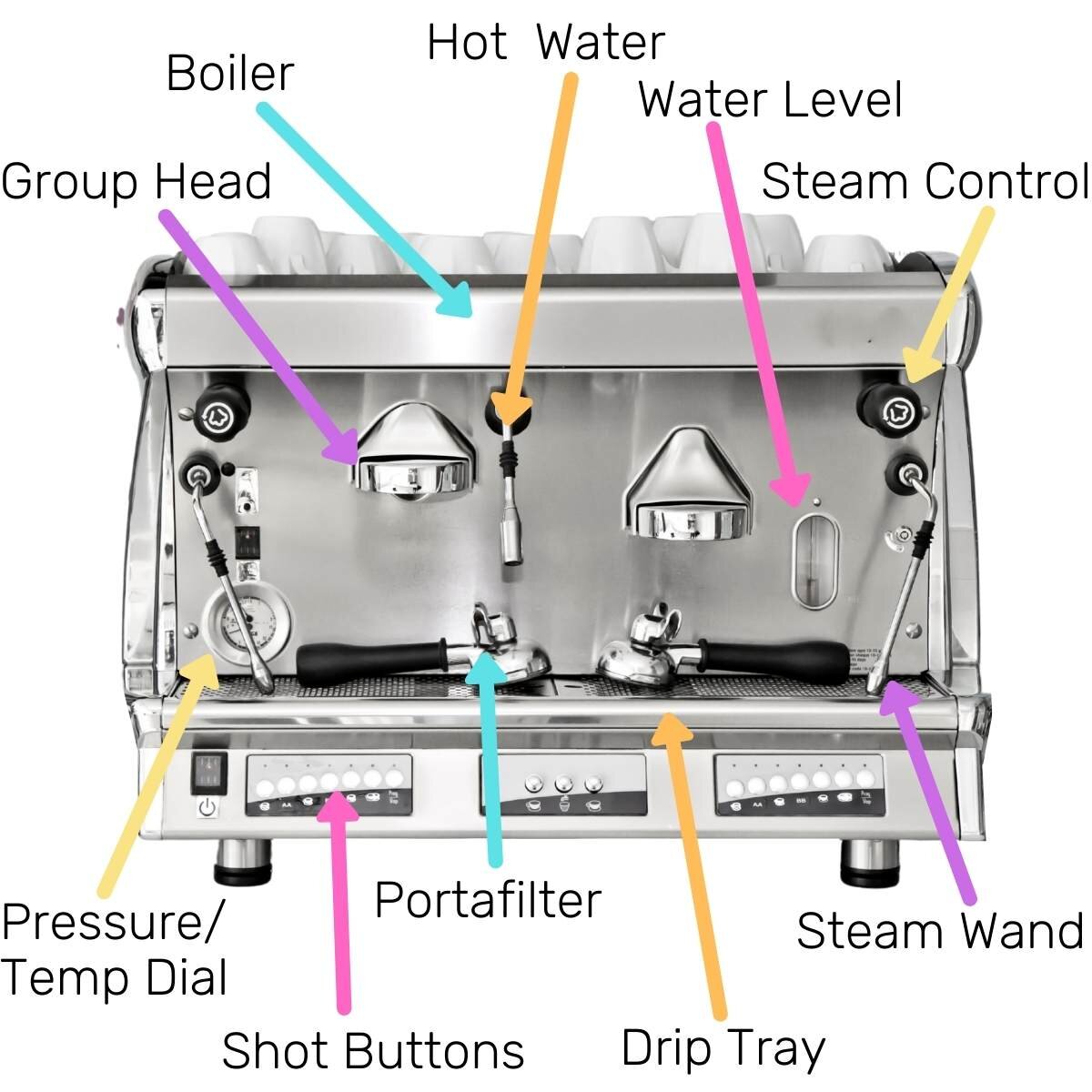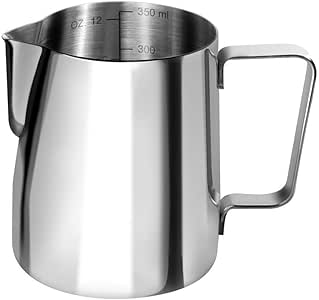Cafes
Melbourne, Australia is renowned for the quality of its coffee and the abundance of chic cafes. My parent’s generation religiously quaffed a good cup of tea after dinner. This was a ritual. Coffee in Europe was perhaps more the domain of the “more cultured” countries, including Italy, Austria, and Greece. The shtetl in Poland wasn’t exactly a place where one could obtain a more refined cup of “Kaveh”. Over time, coffee consumption increased even for Holocaust survivors, who would start the day with a cup accompanying their breakfast. Of course, the coffee was often instant coffee, but it succeeded in nourishing a “caffeine hit” and fueled the ubiquitous Yom Kippur withdrawal headache. As time marched on, and new generations were born, a more sophisticated approach to coffee made its way into homes. Multiculturalism also gave rise to a range of cafes strategically positioned to entice a passerby.
These days, fancy coffee and cafes are everywhere. Indeed, even in Israel, I noticed an improvement in quality, though Israel still has some catching up to do in this regard. Homes now commonly employ a Nespresso-style coffee pod machine (or in the USA a Keurig machine).
Milk Alternatives
Another significant change has been the rise of nonlactose (non cow-based) milk. Let’s call them “alternative” milk. The demand for such milk has grown due to a number of factors-lactose intolerance, vegetarian and vegan demands, and somewhat unproven theories linking milk to a bevy of illnesses. One other benefit of alternative milk is that it is potentially Pareve. Unlike the older style parve coffee creamers, which were a chemical mash-up of all manner of “delights”, alternative milk, in theory, is basically derived from a grain or legume and the addition of water.
To be sure, it isn’t the case that every alternative milk is simply kosher. Every reputable kosher agency publishes a list of alternative milk products which are acceptable from a Halachic standpoint. Indeed, even those which are kosher are sometimes also designated as “DE-Dairy Equipment” which means that they should not be consumed together with a mouthful of meat or chicken.
For those who drink only supervised Chalav Yisrael cow’s milk and do not rely on the leniency of Chalav Stam, alternative milk can be a blessing. However, a DE designation may still change the rules. For them, even though the alternative milk is kosher since it may have shared an equipment line with non-Chalav Yisrael equipment, the DE classification would be moot. This isn’t universal. Non-Chassidim, who otherwise only consume supervised Chalav Yisrael, may nonetheless follow the rulings of Rav Henkin z”l (Teshuvos Ibra 43), as quoted by the CRC), Rav Kaminetsky (Emes LeYaakov p308 as quoted by Rav Jachter) Rav Belsky and others who do not extend the stringency of Chalav Yisrael to vessels/Kelim. For others, notably Chassidim, DE is meaningless if it shares equipment with Chalav Akum and has the same prohibition as Chalav Akum.
So where does this leave us vis-à-vis the contemporary barista coffee shop?
Barista Coffee
A typical machine looks something like this.

Essentially, coffee beans are ground and placed in the portafilter and then attached to the group head. Hot water is then pumped through the portafilter dripping freshly brewed coffee into a cup placed on the tray. Assuming that the coffee beans are not flavoured or oiled in some unacceptable manner, this part of the process ought not to present a Kosher concern. Therefore, someone who orders an espresso or a long black in a disposable cup should be pretty safe from a kashrus perspective. As in all such questions, one should not assume that this blog functions as a Halachic arbiter. Readers should discuss this with their competent local orthodox Rabbi. For Sefardim, a glass cup may be acceptable. Regular crockery presents more of a problem.
The plot thickens (sic) when we introduce the frothed milk or frothed alternative milk. Firstly, is all the regular milk used in the Cafe (especially for those who rely on Chalav Stam) actually Kosher Milk? These days, milk isn’t always “just milk” from the cow. Various additives are commonly introduced and one would need to be sure that the brand of regular milk being used is actually approved by the local kosher authority. Let’s assume that things are simpler and that the Cafe always uses a common brand of milk which is also Kosher (one would need to eyeball the milk and note that they use a fixed brand).
Next, the milk (regular or alternative) is poured into a stainless steel pot that looks like this

The steam wand pictured above is inserted into the pot and, using the steam control, the milk is frothed (yes it could be for a cappuccino, flat white, latte, macchiato, כפה הפוך, and more). The frothed milk is then poured over the freshly brewed black coffee and served in a disposable cup (as above). It’s yours after you part ways with 4-7 dollars.
Introduction of alternative milk
These days the alternatives to cow’s milk are ubiquitous. Almost every coffee shop offers a choice of soy, oat, almond milk, and more. The coffee is made in the same way except that the alternative milk that is now frothed in the pot (which is commonly rinsed in between cups with a hot gush of water) is one of the alternative milk, and shares the use of the steaming wand.
The reality is that some of the alternative kinds of milk are simply not approved by a local kashrut authority. In my experience, after asking which brand of alternative milk a given shop is using, it is very common for at least one of the above alternative kinds of milk to be not approved or not kosher. This reality presents a major problem. Even if one were to ask for a soy latte, and observe that the soy milk being used is of the kosher variety, since that pot and wand is used to froth at high temperatures with one or more non-kosher varieties (and the pot is obviously not kashered in between cups) then the resultant soy latte presents a serious kashrus question.
I know that many יראי שמים do buy a takeaway non-black coffee (with milk or a parve otherwise kosher alternative milk). I wondered whether perhaps I was not across all the halachic parameters and was needlessly alarmist in my thinking.
I discussed the matter with a number of local Rabbis who were somewhat silent but acknowledged the issue. Eventually, I wrote to Rav Yosef Rimon, a respected Posek and educator, who has visited Melbourne on a number of occasions. Rav Rimon answers promptly.
Rav Rimon answered (my adapted translation)
According to your description, some of the milk may not be kosher. If so, it is very possible that non kosher cooking within a 24 hour period occurred, and if so it [the pot] cannot be used anyway. Even if it is known that the pot hadn’t been used for 24 hours, in the first instance (Lechatchila) it would not be permitted and any Heter might only be permitted after the fact, BeDieved.
Therefore, it is difficult to permit and one has to make sure that all types of milk used there are kosher or that they use utensils that never contain milk of any type about which there is a kosher concern.
Personal communication March 9, 2023
In conclusion
It appears to me that unless a given coffee shop or cafe is absolutely known and verified to not be using any brand of non-kosher/approved milk or milk alternative, it would be forbidden to purchase a takeaway cup of non-black coffee. This must be checked, and indeed, a proprietor might be given a list of kosher milk to use as this would benefit religious Jews who wish to patronise their establishment.
If your Posek has a different view, do let me know in the comments section.
Record of correspondence
Here is the text of the question that I sent.
כבוד הרב,
אני כותב אודות בתי קפה בחו’’ל
לפני כמה שנים המצב היה פשוט יותר. למי שסמך על ההיתר של הגרמ’’פ זצ’’ל בדין של חלב ישראל ואחרים שסברו וסוברים כמוהו במדינות מתורבתות עם חוקים נוקשים לגבי מרכיבי מזון וזיוף, היו שנכנסו לבתי קפה וקנו כוס קפה שהוגשה בכוס חד פעמית או בכוס זכוכית (אני מתאר לעצמי שכוס רגילה היא יותר בעייתית) הקפה נעשה על ידי טחינת הפולים, מים חמים ותוספת חלב מוקצף. החלב המוקצף נעשה על ידי החדרת זרבובית מחוממת שהתיזה אוויר חם לתוך סיר מתכת קטן המכיל חלב. כמובן, היו וריאציות על כמות החלב והסגנון, ואלה נקראים בשמות שונים כולל ’’קפוצ’ינו, אמריקנו, לאטה’’ ועוד. יש אנשים אחרים, כולל כאלה אינם מקילים אל פי הפסק של ר׳ משה, ושותים רק קפה שחור.
(אגב אני יודע שיש חשש במדינות מסוימות בנוגע להליכים וטרינריים המקלים על הצטברות גז בפרות, כך שהנהלים הללו יכולים להפוך את הפרות לטריפות ויש שסוברים שזה דין רוב ואינו מיעוט שאינו מצוי. אני לא כותב אודות פרות כאלה ––– פה, הזנת הפרה היא דשא, והבעיה אינה שכיחה כלל.)
עכשיו אני פונה לשאלה בזמנינו.
ידוע, קיימים כיום סוגים חלופיים רבים של חלב ללא לקטוז, ביניהם סויה, שקדים, שיבולת שועל ועוד. כאשר מכינים קפה באמצעות חלבים אלטרנטיביים אלה, התהליך זהה, אלא שסיר הפלדה המשמש להקצפה של החלב מכיל את מוצר החלב אלטרנטיביים האלה. מוט ההקצפה שמרסס את האוויר החם משמש במשותף עם חלב רגיל ובין החלב באלטרניטיביים, אך מנוקה בין כל כוס עם סמרטוט, ולפעמים עם פרץ של אוויר חם מהמוט לפני ניגוב על ידי הסמרטוט.
כאן, ובמדינות מערביות אחרות בחו’’ל, לא כל סוג של סויה, שיבולת שועל, שקדים או חלב אחר מקבל הכשר. יש רשימה של חלבים כשרים ידועים, ובחנות ספציפית, כל אחד מהחלבים האלטרנטיביים שבהם הם משתמשים עלולים להיות לא כשרים. אפשר וצריך כמובן לשאול באיזה חלב אלטרנתיבי ספציפי שהם משתמשים, וגם לראות את קופסה. זה לא כך רגיל שבית קפה ישתמש רק בסוגים הכשרים של חלב אלטרנטיבי. סביר הרבה יותר, אם לא כמעט בטוח, שלפחות אחד מהחלבים האלטרנטיביים שהם משתמשים בהם אינו כשר.
ולכן, על פי הנאמר למעלה, יש שאלה על קניית קפה בבתי שפה אפילו עם חלב רגיל כשהשתמשות בסיר הפלדה ומוט ההקצפה בין כוס קפה לכוס קפה יכול להיות לפני כן עם חלב אלטרנטיבי לא כשר. שניהם––המוט וסיר הפלדה הם בוודאי בחום של יד סולדת. בדרך כלל, איך שאני ראיתי, שותפים את הסיר בין כוס קפה על ידי זרם מים.
הנה, בשולחן ערוך יורה דעה הלכות הכשר וטבילת כלים סימן קכב סעיף ו כתוב:
“אף על פי כן אסור לומר לעובד כוכבים: בשל לי ירקות בקדרתך, וכן לא יאמר לו: עשה לי מרקחת, שכל האומר: בשל לי, הרי הוא כאלו בישל בידיו”
(גם אם הבליעה יהא בטל, או אינו בן יומו, או טעם פגום או בטל)
שלכאורה, לפי זה ועוד, יהיה לכאורה אסור לקנות קפה בחנות כשידוע שמשתמשים באפילו סוג אחד של חלב שאין לו הכשר? (לפי הועדת הכשרות במדינה).
(כאמור, בחנויות הם שותפים את סיר הפלדה מהר בזרם מים בין כל כוס וכוס … והם מנגבים את מוט ההקצפה בין שימוש לשימוש)
and here is the response
מקווה שעבר עליכם פורים בטוב
לפי הנתונים שלכם חלק מהחלב איננו כשר. אם כך, ייתכן מאוד שהיה בישול אפילו בן יומו לא כשר, ואם כך ממילא אי אפשר להשתמש. גם אם ידוע שזה לא בן יומו, ההיתר יהיה בדיעבד ולא לכתחילה.
לכן קשה להתיר וצריך לדאוג שכל סוגי החלב יהיו כשרים או שישתמשו בכלים שבוודאי לא היה בהם חלב מכל סוג שיש לגביו חשש כשרות.
בהצלחה רבה בע”ה
יוסף צבי רימון



